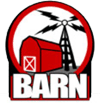 News from Andy Vance at the Buckeye Ag Radio Network.
News from Andy Vance at the Buckeye Ag Radio Network.
Although it may not be the statistical leader of the dairy industry, Wisconsin is certainly THE dairy state in the hearts and minds of the consuming public. But that may change if dairies continue to dwindle. To combat the shrinking number of dairies and dairymen in the state, farmers, businessmen, and educators are working to develop a $10.2 million training facility to develop producers who are confident they have the skills to start and maintain profitable dairy businesses.
The Wausau area Chamber of Commerce in conjunction with several area agribusinesses, the Northcentral Technical College and local farmers is in the planning stage of an educational school called Dairyland State Academy. The academy, which would annually graduate 30 potential entrepreneurs, will offer one and two year Associates degrees, potentially to students who would transfer on to a four year institution. The most compelling aspect of the project is that the Academy will be a working Wisconsin dairy farm.
In a state where dairy production and processing adds $20.6 billion to the economy, the business model makes sense. Even though the sector employs over 78,000 workers, those jobs are slipping, particularly as a generation of farmers begins to retire with no successor in place. In fact, the outmovement is significant enough that 15% of the state’s milk for processing is now imported. The Dairyland State Academy aims to attract and train folks to replace those entrepreneurs and build new dairy businesses in the region. These future dairy professionals will learn to raise livestock, produce milk, grow crops, and run a business, all through the operation of a profitable dairy herd on site, with additional learning on cooperating area farms and in local processing facilities.
The Dairyland State Academy Task Force is planning the project, expected to open in fall 2007, as a producer driven, non-profit foundation. Five farmers lead the Task Force, alongside bankers, the local Feed Mill proprietor, Chamber of Commerce executives, and Extension and University educators.
To view the full vision/business plan, click http://marathon.uwex.edu/ag/documents/DSAProspectus05.pdf
